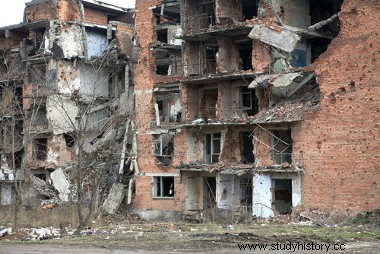
By Me. Claúdio Fernandes
The Caucasus region e that of the Balkans – both located in Eastern Europe – since the formation of Europe in the Middle Ages, they have always been characterized by a high frequency of ethnic and religious conflicts. This region (Caucasus) was occupied by Germans, Slavs, Muslims and Christians, being, at the time of the First War World , the center of interests of the Austro-Hungarian Empire, the Turkish-Ottoman Empire and the Russian Empire. Since then, the fragmentation of these empires, the origin of the USSR , the Monday War , the War Cold and the dissolution of the USSR radically transformed it.
The situation in Chechnya after the fall of the Soviet empire in 1989 was one of the most delicate. With a mostly Muslim population, Chechnya remained a province of Russia. However, in 1991, it tried to become independent. Over the next three years, then Russian President Boris Yeltsin worked with the military to plan offensives against Chechnya and reincorporate it into his domains. In 1994, the conflict in Chechnya began . In 1996, Russia was defeated by the Chechen resistance, led by Maskhadov, who, in addition to independence, wanted to establish a state guided by Islamic law.
In 1999, then Russian Prime Minister Vladimir Putin (and later president) decided to launch an even bigger offensive against the Chechens. Putin sent a contingent of 100,000 troops to the region, as well as heavy weaponry. Since then, the conflict in Chechnya has taken on enormous proportions, with thousands of deaths and cities ruined. At the same time, several Chechen separatist militants used terrorist tactics against Russia, such as kidnappings and bombings. In October 2002, a group of armed Chechens invaded a theater south of Moscow and took about 800 hostages, demanding the withdrawal of Russian troops from Chechnya.
There are several indications that this and other similar events were the result of links between Chechen rebels and Islamic terrorist groups, such as Al-Qaeda, which planned the attack on the United States on 11 September 2001.
